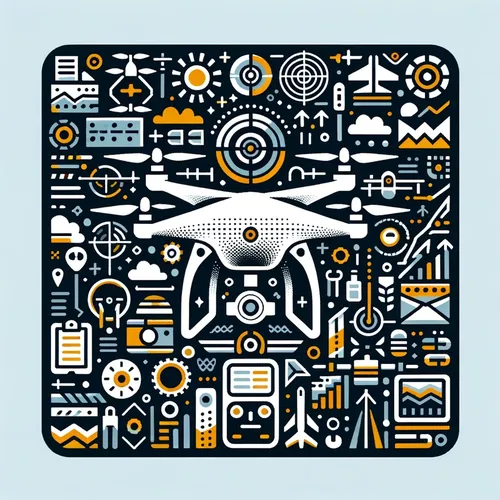Drones Soar: Juicy Secrets for Savvy Pilots to Dominate the Skies
- Author
- Quiet. Please
- Published
- Sun 10 Aug 2025
- Episode Link
- https://www.spreaker.com/episode/drones-soar-juicy-secrets-for-savvy-pilots-to-dominate-the-skies--67318070
This is you Professional Drone Pilot: Flight Tips & Industry Updates podcast.
Professional drone pilots are entering an era where both opportunity and complexity are soaring. Advanced flight techniques like autonomous waypoint missions and real-time data annotation are becoming mainstream as artificial intelligence and machine learning proliferate in commercial drones. For pilots, continually honing manual control remains critical, especially for operations where real-time decision-making and safety are paramount, such as urban inspections or emergency response. Regular practice with manual orientation, precise takeoffs and landings, and obstacle avoidance—even for those using advanced automated features—sets professionals apart.
Maintaining and optimizing your equipment now requires a diligent, proactive approach. As fully autonomous drones become more common, consistent firmware updates, regular sensor calibrations, and battery health tracking are essential for reliable performance. Cleaning payload sensors and inspecting airframes after every flight minimizes downtime and ensures data quality. At the same time, advanced software integration demands that pilots stay current on platform updates and cybersecurity best practices to protect sensitive client data.
Industry analysis from Grand View Research notes that the commercial drone market, estimated at 30 billion US dollars in 2024, is forecast to reach more than 54 billion by 2030, spurred by growing demand for aerial data across inspection, logistics, and real estate sectors. Media coverage this week includes reports that the United States Postal Service is accelerating drone delivery trials in several states, capitalizing on urban demand for rapid e-commerce fulfillment. Meanwhile, new advances in onboard AI are enabling drones to process and share inspection results with remote teams in real time, significantly reducing project turnaround times.
Certification and regulatory compliance remain critical. Federal rules require drone pilots to renew their Remote Pilot Certificate every two years through a free FAA online recurrent training. Keeping up with local temporary flight restrictions and Remote ID requirements is a must, as is registering every operational aircraft with the authorities. The cost of registration in the United States remains five dollars for three years per drone.
Client relations and pricing strategies demand transparency and agility as competition heats up. Pilots who provide detailed flight plans, maintain clear communication before and after each mission, and leverage tiered pricing models for data processing add measurable value and earn repeat business. Professional liability insurance is more important than ever, as clients increasingly require proof of coverage for property, injury, and data security.
Pilots should monitor weather patterns with up-to-the-hour forecasting tools to mitigate flight cancellations and minimize risk. Future trends point to further integration of AI, wider adoption of coordinated, multi-drone operations, and ongoing expansion in logistics and infrastructure sectors.
Thank you for tuning in, and join us next week for more essential insights for professional drone operators. This has been a Quiet Please production—visit Quiet Please Dot A I to learn more.
For more http://www.quietplease.ai
Get the best deals https://amzn.to/3ODvOta
